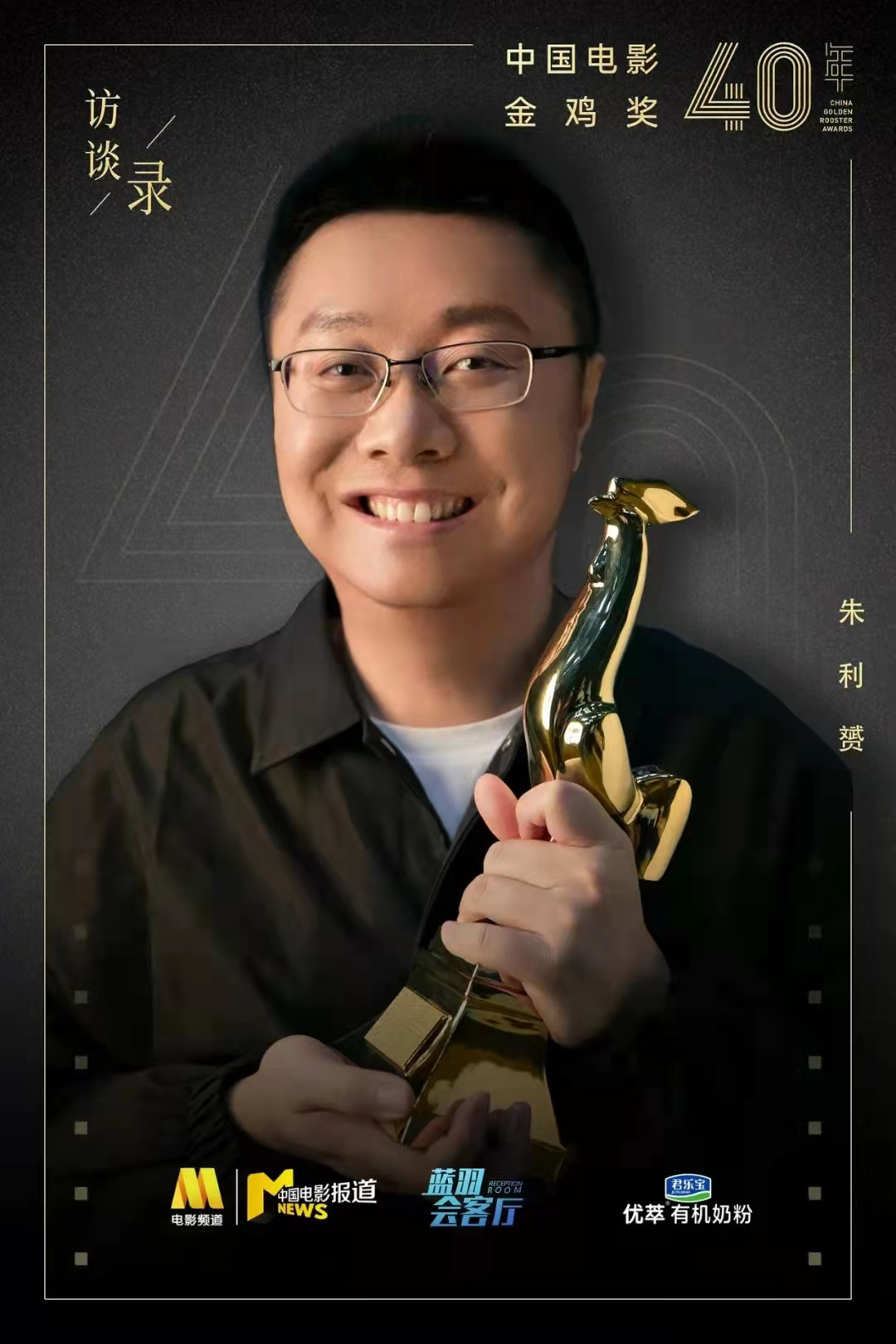Special feature of 1905 film network "At the moment when you really get the Golden Rooster trophy, you should have a sense of responsibility and mission that has been passed down in your mind?" Pointing to the trophy in Zhu Yun’s hand.
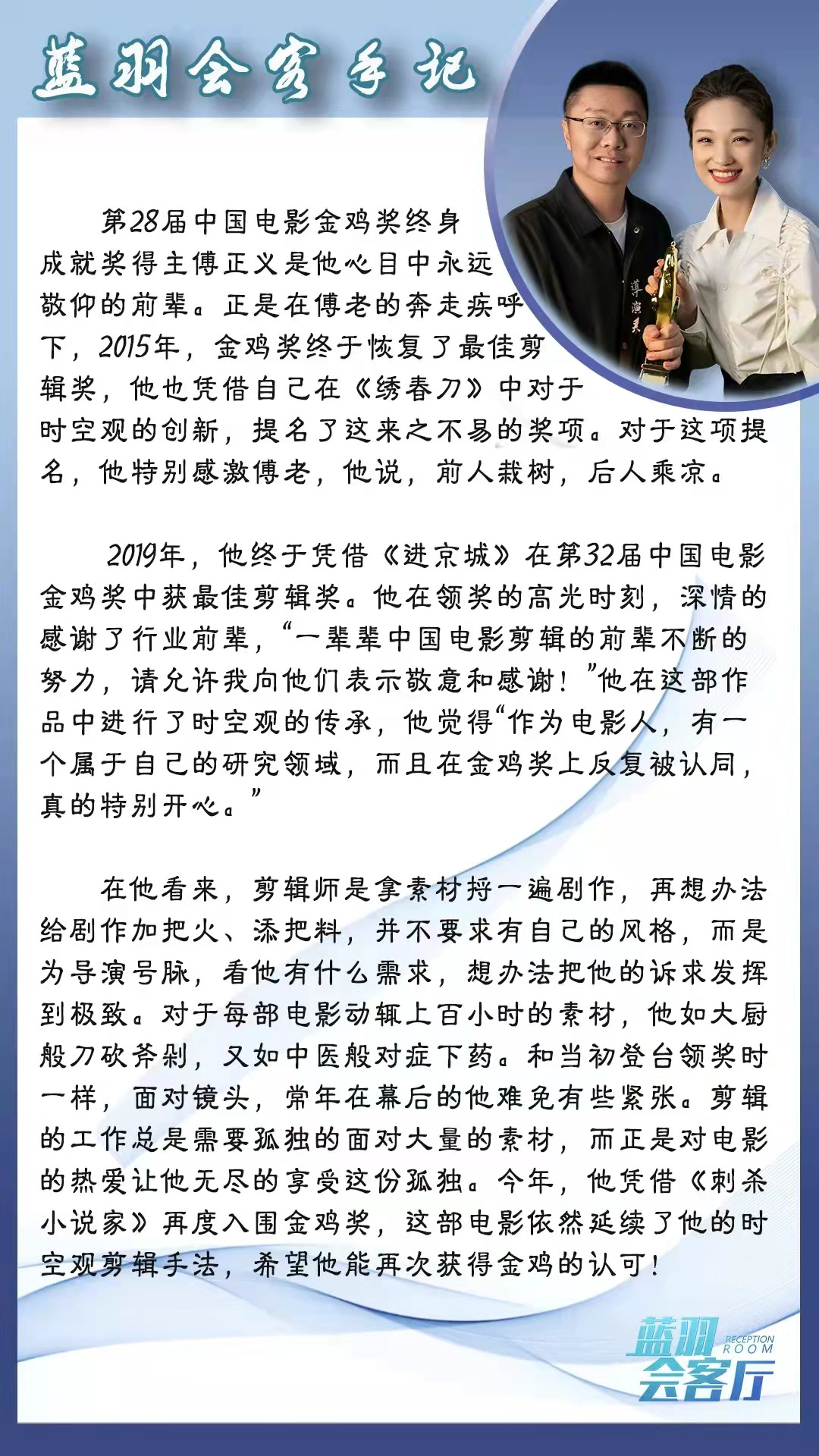
"Yes, it was the highlight of life and the climax of life." Zhu Liyun’s eyes sparkled and he was lost in memories.
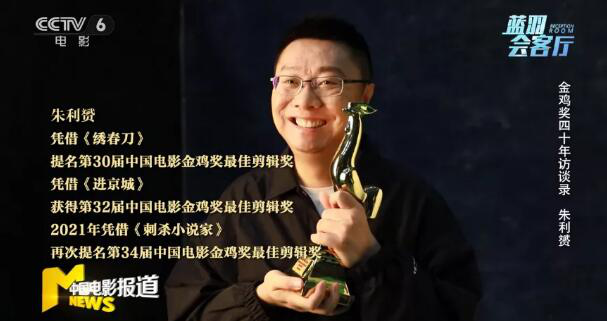
As early as 2015, he was nominated for the Best Editing Award of the 30th Golden Rooster Award for Chinese Films, which was the first year when the Golden Rooster Award was restored to the Best Editing Award. Four years later, he finally won the Best Editing Award in the 32nd Golden Rooster Award of Chinese Film. On the stage, he thanked that person … …
2021 is the 40th anniversary of the Golden Rooster Award in Chinese films. Blue Feather Living Room specially launched a series of interviews on the 40th anniversary of the Golden Rooster Award, looking back on the glorious years of light and shadow, and talking about the future of China films. Zhu Liyun, director of Lan Yu Dialogue, listened to the video creation in the digital age witnessed by the film editor.
"China’s first haircut" is a great god in my heart.
The winner of the 28th Golden Rooster Award for Lifetime Achievement in Chinese Film is called "China’s First Cut", which is the editing god in his heart. Fu Lao’s speech on life when he won the prize is still hit the floor in his heart. "Heaven rewards diligence, everything depends on human effort." This sentence, which the Fu Lao insisted on all his life, has also become Zhu Liyun’s motto. Under the strong appeal of Fu Lao, the Golden Rooster Award for Best Editing was restored in 2015. For this opportunity of "the predecessors planted trees, and the descendants enjoyed the cool", Zhu Liyun was also shortlisted for the Golden Rooster Award for Best Editing Award for his innovative editing techniques for the concept of time and space in Embroidered Spring Knife.
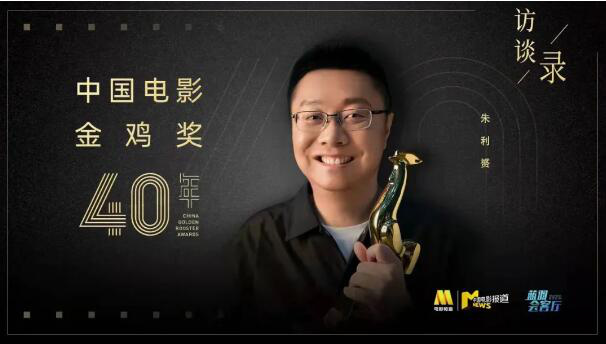
"Will there be embarrassment for the first nomination?" Lan Yu asked.
"Dare not, because the best editing award was restored for the first time in so many years, I will have a chance to nominate, which is already a historic event," Zhu Yun waved his hand. "Embroidered Spring Knife actually did something different when editing, but it seems that few people except the director agree with what we did, so that nomination is particularly important to me."
In 2019, he finally won the best editing award in the 32nd Golden Rooster Award of China for his inheritance of editing techniques of self-concept of time and space in Entering Beijing. At the highlight of his life, he deeply thanked Fu Zhengyi, a senior in the industry. "Today, this award is particularly heavy in my hand, because the predecessors of China film editing are constantly working hard. Please allow me to express my respect and gratitude to them!"
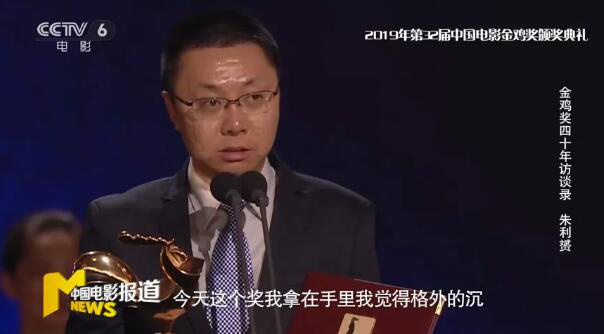
When Lan Yu asked about the significance of the Fu Lao in his mind, he said that the Fu Lao is a great god in his heart and an example in the mind of every editor in China editing industry. He also said that he was lucky when he won the prize, and these "descendants" had to thank the "predecessors" of Fu Lao for planting trees.
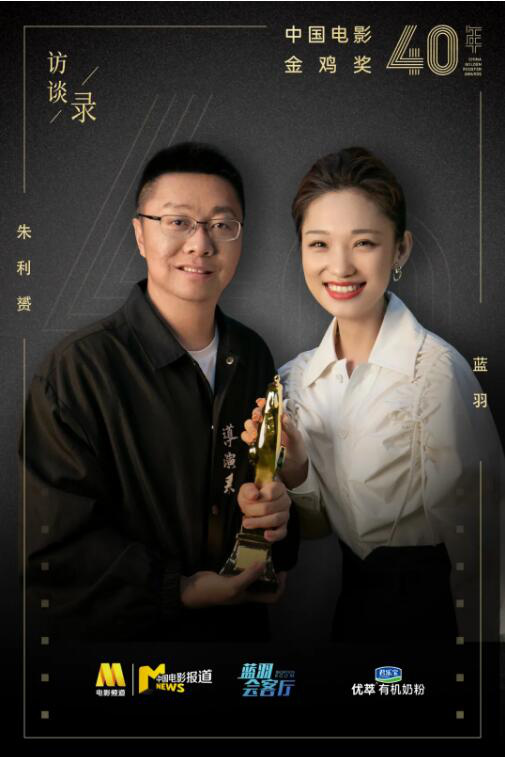
Add fire and material to the film.
"As a filmmaker, you have a research field of your own, which is really a very happy thing. Moreover, this matter was repeatedly recognized at the Golden Rooster Award, which gave me great encouragement. " Zhu Liyun talked excitedly about his creative mood.
Talking about his love for editing, his words are even more dense. "If you immerse yourself in it, it will look tired, lonely and hard to others, but I will feel no, I am not so tired. I think the first and most important thing in the editing industry is that you have to love movies, and you must find something different from what everyone thinks is the same. It needs to be carried out with full attention. "
During the intensive editing of the Golden Rooster Award-winning work "Into the Capital", one day, many opera experts came and said that the opera had not been finished and had to be sung from the beginning. After about an hour, Zhu Yun stood up and said, "Stop, stop, we can’t change it like this. We must ensure the film, and I will respect the opera itself to the maximum extent."
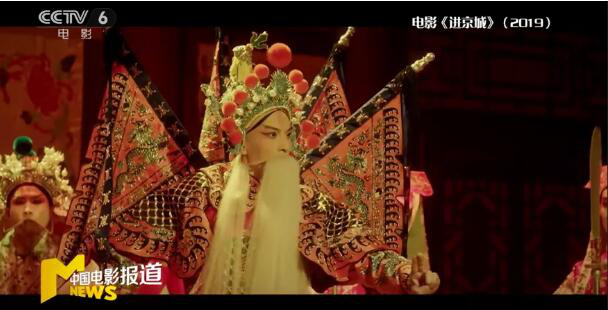
In the end, he drew lessons from many expressions of traditional operas in the editing, and showed many scenes of freeze-frame appearance. "We must do things according to the materials, first take the materials to stroke the plays, and then find ways to add fire and materials to the plays."
In the last month of Embroidered Spring Knife, he and his team, such as the chef with exquisite cooking skills, completely changed the second half of the story into a "dish", and made five large parallel clips of the whole film, completely breaking the time and space, and even mixing the scenes of day and night.
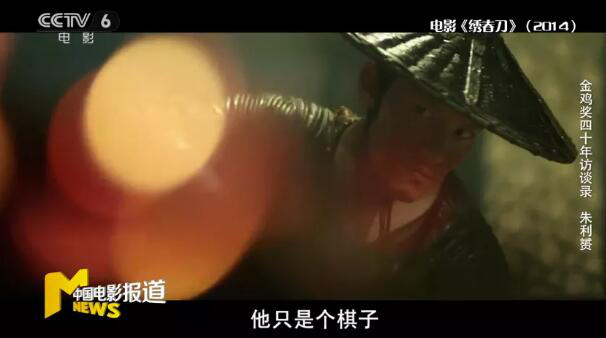
In this year’s Spring Festival movie, there are two scenes that go home during the day and go home at night. He didn’t watch them, so he cut them together — — When a poor man comes home and pushes the door and sees a mansion, a man who is used to a mansion loses his memory and pushes the door when he comes home. This reaction and contrast are the same in specific emotions.
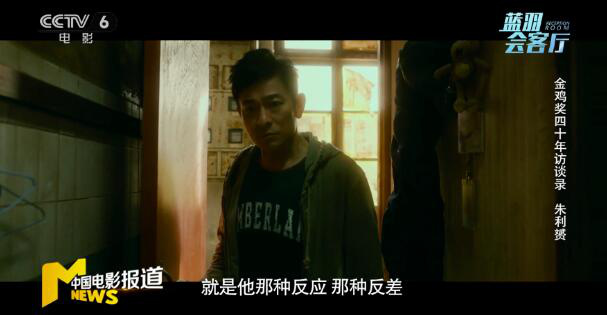
In Lan Yu’s view, the best editing undoubtedly needs to give the director extra points. He agreed, "Right, editor, don’t try to have your own style. What you have to do is to pulse the film, then see what the director needs and try to maximize his demands."
Lan Yu pondered for a moment and asked, "So in the process of your cooperation with every director, will it be very tacit?" I believe that there should be many moments of dispute in the process of cutting. "
Zhu Liyun smiled and said, "I will argue more directly with this relationship. When filming "Embroidered Spring Knife", once we were all about to fight, and there was a scene where we were carrying our backs. Then Liu Shishi said that Zhang zhen was injured, so he helped him cover the wound. At the beginning of filming, I felt that only one shot was needed for that scene; But Lu Yang felt that both sides should be taken care of, so I insisted that it should not be interrupted by editing points in the middle. When we connect the whole film, I won’t argue with him about it anymore, because I think it needs to be interrupted in terms of the rhythm of the whole film, and its rhythm is the same. "
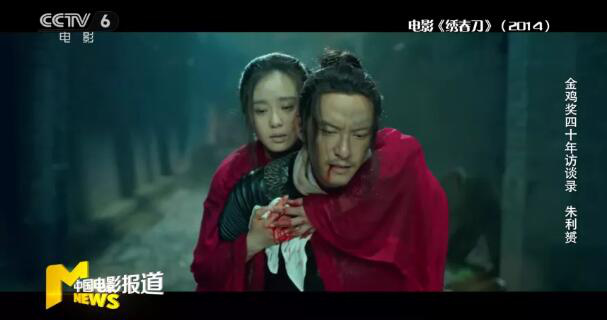
"Later, when I cut it, I told the old road (Yang) that today I won’t cut it first. Let’s discuss one thing first. Can this novel change reality? We discussed this for three to four hours. In fact, the final solution was that we added a voice-over to solve this problem. "
Every movie, he received hundreds of hours of material, so he began to edit it on the spot. "Into the Capital" was roughly cut out for 150 minutes, A Writer’s Odyssey was roughly cut out for 4.5 hours, and "Crowd" was roughly cut out for 5 hours and 40 minutes. He needs to cut them to a reasonable screening duration. "Because the audience will be tired after a long time, we must consider how much information the audience can accept."
Lan Yu noticed the concept of live editing. Zhu Liyun explained that his first contact with live editing was actually when the director was shooting. He was the live editing of that film and helped the director verify this sub-shot. At first, he couldn’t understand. At that time, director Tsui Hark often came over and asked him, "Did we shoot enough?" Because director Tsui Hark came from the film era, in order to save film, every shot will need to be edited.
And when the digital age comes, we don’t need to worry about a provincial material. Although his graduation homework in 2009 was still on film, it was all digitized after graduation. This has reduced the cost of many projects. He said, "I’m the only one in the editing group. Only the digital age can support us to do this. It’s because of the dividend of the digital age that there are so many materials for us to play freely, and then the editing really becomes an editing, not just an execution by the director."
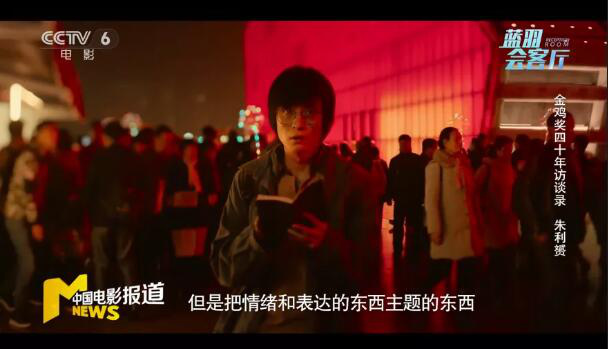
For the future direction of editing, he thinks that the future films will make some breakthroughs in time and space, and take emotions and expressions as the main line to narrate. Therefore, he is also trying hard in this direction, and he also sees many people trying hard to do this kind of attempt.
